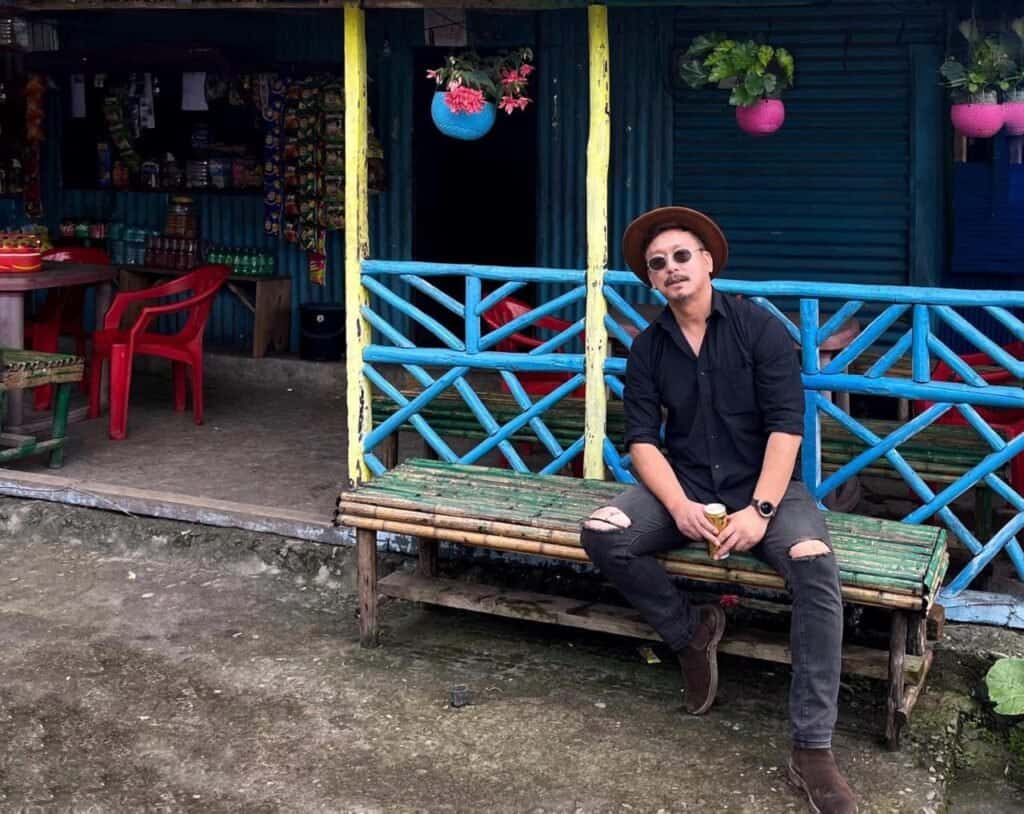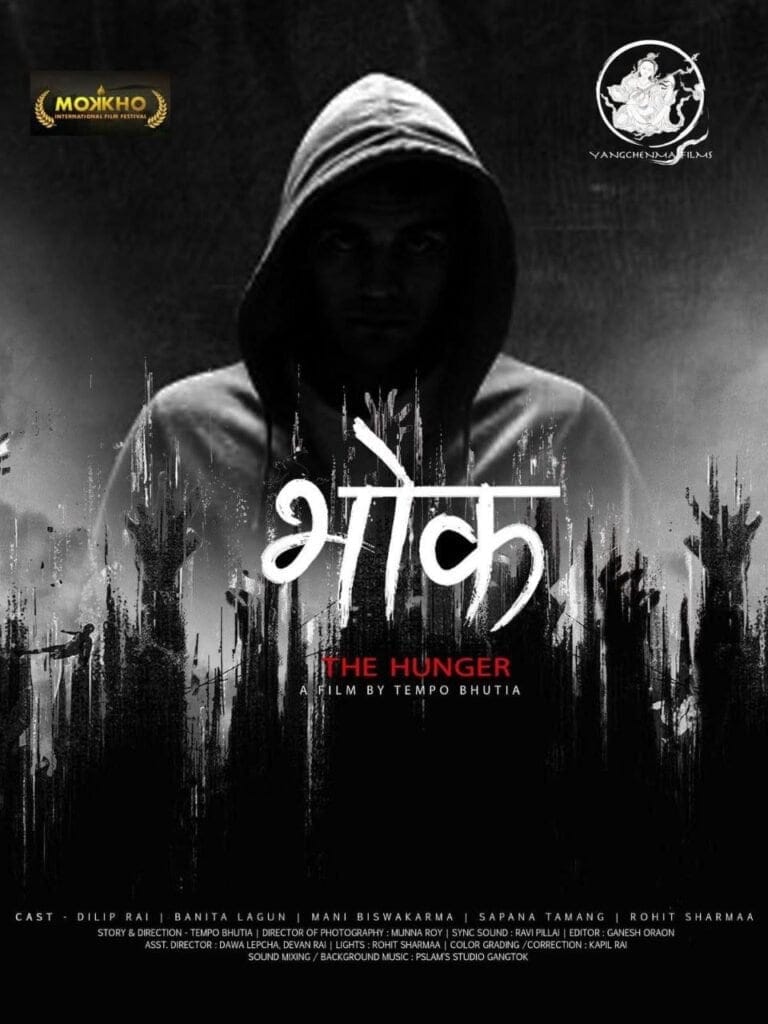Tempo Bhutia is an emerging Sikkimese filmmaker whose exceptional talent has garnered significant recognition in the independent film circuit. His Nepali-language short film, “Bhok,” recently won the Best Indian Short Film award at the prestigious Indian Independent Film Festival (IIFF). “Bhok” has also earned accolades at the Mokkho International Film Festival, securing its place as an award-winning project. Tempo’s unique storytelling, coupled with his ability to blend poignant realism with societal reflections, marks him as a promising voice in contemporary cinema. Despite personal challenges, including the loss of his father during the film’s production, Tempo’s dedication to his craft and his commitment to representing Sikkimese culture through the Nepali language have propelled him to the forefront of independent filmmaking.
He exclusively speaks with Sikkim Chronicle.
Sikkim Chronicle: Can you share the inspiration behind your film “Bhok”?
Tempo Bhutia: When I talk about the inspiration behind “Bhok,” I cannot pinpoint one particular thing. I basically like writing more. As I was asked to give a statement by the festival, my answer was that films are an extension of one’s imagination. They can create a sparkling make-believe world or immerse us into poignant realism.
SC : What drew you to the horror genre for this film?
Tempo Bhutia: By horror, it doesn’t have jump scares or ghosts. I believe the facts happening in society are sometimes stranger than fiction.

SC: What challenges did you face during the making of “Bhok”?
Tempo Bhutia: At a personal level, it was during the time of making that my father was diagnosed with cancer and passed away before the completion of the film. Professionally, I didn’t face many difficulties because I was surrounded by people who believed in this project and my idea of filmmaking.
SC: Can you tell us about your experience working with the cast?
Tempo Bhutia: My actors are some of the well-known faces in the film circle of Sikkim. Mr. Dilip Rai is a veteran, and Ms. Banita Lagun is a well-versed artiste. They were instrumental in making this film a success. There are certain surprises in the form of actors that I won’t be able to disclose right away.
SC: How did it feel to win the Best Indian Short Film award at IIFF?
Tempo Bhutia: Winning the award feels absolutely amazing. I am delighted, but I sense that this is not all. The most important thing is that it has given me encouragement to do better. My self-belief has risen after this.
SC: We heard that “Bhok” has also been declared an award winner at the Mokkho International Film Festival. Can you tell us more about this?
Tempo Bhutia: Yes, it gives me great pleasure to let you know that “Bhok” has now been declared an award winner at Mokkho as well. 🕺🙌🏼 That’s the latest update.
SC: How important is it for you to create films in Nepali and represent Sikkimese culture?
Tempo Bhutia: I am born to a Bhutia father and a Nepali mother, so I am very comfortable in Nepali as well. In fact, I studied Nepali throughout my school years. It is very important to conserve our uniqueness and identity because it’s correct when they say if culture is lost, everything is.

SC: What message would you like to convey to aspiring filmmakers and your audience?
Tempo Bhutia: My message is not just for upcoming filmmakers but for our viewers as well. We lack an ecosystem where films are made and watched locally.
SC: How has your experience been with the IIFF and Mokkho International Film Festival?
Tempo Bhutia: IIFF and Mokkho have both been extremely professional and amazing with communication. A film by nobody like me being awarded simply on merit speaks volumes about them.
SC: What role do you think independent film festivals play in promoting independent and regional films?
Tempo Bhutia: Independent film festivals are the ones providing platforms for independent filmmakers. Otherwise, so many stories would have remained untold.

